When the World Shook (2)
By:
March 16, 2012
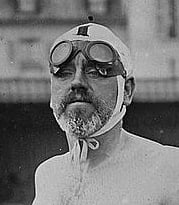
HILOBROW is pleased to present the second installment of our serialization of H. Rider Haggard’s When the World Shook. New installments will appear each Friday for 24 weeks.
Marooned on a South Sea island, Humphrey Arbuthnot and his friends awaken the last two members of an advanced race, who have spent 250,000 years in a state of suspended animation. Using astral projection, Lord Oro visits London and the battlefields of the Western Front; horrified by the degraded state of modern civilization, he activates chthonic technology capable of obliterating it. Will Oro’s beautiful daughter, Yva, who has fallen in love with Humphrey, stop him in time?
“If this is pulp fiction it’s high pulp: a Wagnerian opera of an adventure tale, a B-movie humanist apocalypse and chivalric romance,” says Lydia Millet in a blurb written for HiLoBooks. “When the World Shook has it all — English gentlemen of leisure, a devastating shipwreck, a volcanic tropical island inhabited by cannibals, an ancient princess risen from the grave, and if that weren’t enough a friendly, ongoing debate between a godless materialist and a devout Christian. H. Rider Haggard’s rich universe is both profoundly camp and deeply idealistic.”
Haggard’s only science fiction novel was first published in 1919. In September 2012, HiLoBooks will publish a beautiful new edition of When the World Shook, with an introduction by Atlantic Monthly contributing editor James Parker. NOW AVAILABLE FOR PRE-ORDERING!
SUBSCRIBE to HILOBROW’s serialized fiction via RSS.
LAST WEEK: “Oh! in my small way I was like the weary King Ecclesiast. For I too made me great works and had possessions of great and small cattle (I tried farming and lost money over it!) and gathered me silver and gold and the peculiar treasure of kings, which I presume means whatever a man in authority chiefly desires, and so forth. But ‘behold all was vanity and vexation of spirit, and there was no profit under the sun.'”
ALL EXCERPTS: 1 | 2 | 3 | 4 | 5 | 6 | 7 | 8 | 9 | 10 | 11 | 12 | 13 | 14 | 15 | 16 | 17 | 18 | 19 | 20 | 21 | 22 | 23 | 24
My other friend, Bickley, was a person of a quite different character. Like Bastin, he was learned, but his tendencies faced another way. If Bastin’s omnivorous throat could swallow a camel, especially a theological camel, Bickley’s would strain at the smallest gnat, especially a theological gnat. The very best and most upright of men, yet he believed in nothing that he could not taste, see or handle. He was convinced, for instance, that man is a brute-descended accident and no more, that what we call the soul or the mind is produced by a certain action of the grey matter of the brain; that everything apparently inexplicable has a perfectly mundane explanation, if only one could find it; that miracles certainly never did happen, and never will; that all religions are the fruit of human hopes and fears and the most convincing proof of human weakness; that notwithstanding our infinite variations we are the subjects of Nature’s single law and the victims of blind, black and brutal chance.
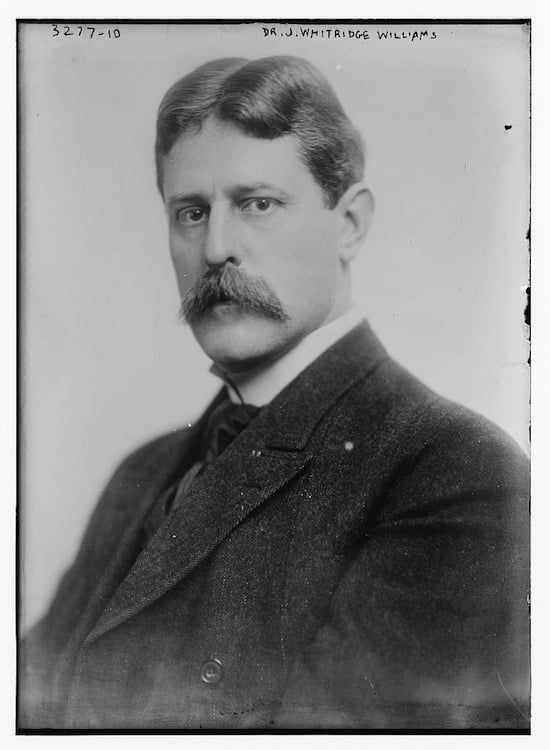
Such was Bickley with his clever, well-cut face that always reminded me of a cameo, and thoughtful brow; his strong, capable hands and his rather steely mouth, the mere set of which suggested controversy of an uncompromising kind. Naturally as the Church had claimed Bastin, so medicine claimed Bickley.
Now as it happened the man who succeeded my father as vicar of Fulcombe was given a better living and went away shortly after I had purchased the place and with it the advowson. Just at this time also I received a letter written in the large, sprawling hand of Bastin from whom I had not heard for years. It went straight to the point, saying that he, Bastin, had seen in a Church paper that the last incumbent had resigned the living of Fulcombe which was in my gift. He would therefore be obliged if I would give it to him as the place he was at in Yorkshire did not suit his wife’s health.
Here I may state that afterwards I learned that what did not suit Mrs. Bastin was the organist, who was pretty. She was by nature a woman with a temperament so insanely jealous that actually she managed to be suspicious of Bastin, whom she had captured in an unguarded moment when he was thinking of something else and who would as soon have thought of even looking at any woman as he would of worshipping Baal. As a matter of fact it took him months to know one female from another. Except as possible providers of subscriptions and props of Mothers’ Meetings, women had no interest for him.
To return — with that engaging honesty which I have mentioned —Bastin’s letter went on to set out all his own disabilities, which, he added, would probably render him unsuitable for the place he desired to fill. He was a High Churchman, a fact which would certainly offend many; he had no claims to being a preacher although he was extraordinarily well acquainted with the writings of the Early Fathers. (What on earth had that to do with the question, I wondered.) On the other hand he had generally been considered a good visitor and was fond of walking (he meant to call on distant parishioners, but did not say so).
Then followed a page and a half on the evils of the existing system of the presentation to livings by private persons, ending with the suggestion that I had probably committed a sin in buying this particular advowson in order to increase my local authority, that is, if I had bought it, a point on which he was ignorant. Finally he informed me that as he had to christen a sick baby five miles away on a certain moor and it was too wet for him to ride his bicycle, he must stop. And he stopped.
There was, however, a P.S. to the letter, which ran as follows:
“Someone told me that you were dead a few years ago, and of course it may be another man of the same name who owns Fulcombe. If so, no doubt the Post Office will send back this letter.”
That was his only allusion to my humble self in all those diffuse pages. It was a long while since I had received an epistle which made me laugh so much, and of course I gave him the living by return of post, and even informed him that I would increase its stipend to a sum which I considered suitable to the position.
About ten days later I received another letter from Bastin which, as a scrawl on the flap of the envelope informed me, he had carried for a week in his pocket and forgotten to post. Except by inference it returned no thanks for my intended benefits. What it did say, however, was that he thought it wrong of me to have settled a matter of such spiritual importance in so great a hurry, though he had observed that rich men were nearly always selfish where their time was concerned. Moreover, he considered that I ought first to have made inquiries as to his present character and attainments, etc., etc.
To this epistle I replied by telegraph to the effect that I should as soon think of making inquiries about the character of an archangel, or that of one of his High Church saints. This telegram, he told me afterwards, he considered unseemly and even ribald, especially as it had given great offence to the postmaster, who was one of the sidesmen in his church.
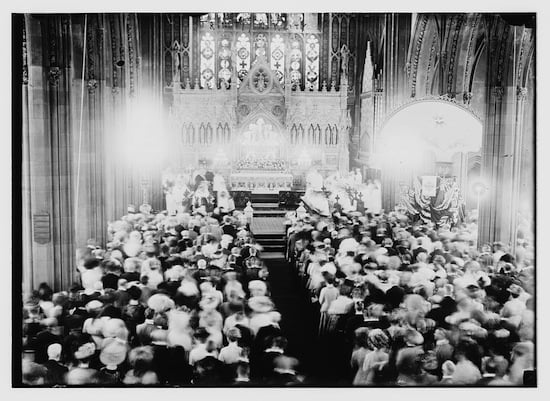
Thus it came about that I appointed the Rev. Basil Bastin to the living of Fulcombe, feeling sure that he would provide me with endless amusement and act as a moral tonic and discipline. Also I appreciated the man’s blunt candour. In due course he arrived, and I confess that after a few Sundays of experience I began to have doubts as to the wisdom of my choice, glad as I was to see him personally. His sermons at once bored me, and, when they did not send me to sleep, excited in me a desire for debate. How could he be so profoundly acquainted with mysteries before which the world had stood amazed for ages? Was there nothing too hot or too heavy in the spiritual way for him to dismiss in a few blundering and casual words, as he might any ordinary incident of every-day life, I wondered? Also his idea of High Church observances was not mine, or, I imagine, that of anybody else. But I will not attempt to set it out.
His peculiarities, however, were easy to excuse and entirely swallowed up by the innate goodness of his nature which soon made him beloved of everyone in the place, for although he thought that probably most things were sins, I never knew him to discover a sin which he considered to be beyond the reach of forgiveness. Bastin was indeed a most charitable man and in his way wide-minded.
The person whom I could not tolerate, however, was his wife, who, to my fancy, more resembled a vessel, a very unattractive vessel, full of vinegar than a woman. Her name was Sarah and she was small, plain, flat, sandy-haired and odious, quite obsessed, moreover, with her jealousies of the Rev. Basil, at whom it pleased her to suppose that every woman in the countryside under fifty was throwing herself.
Here I will confess that to the best of my ability I took care that they did in outward seeming, that is, whenever she was present, instructing them to sit aside with him in darkened corners, to present him with flowers, and so forth. Several of them easily fell into the humour of the thing, and I have seen him depart from a dinner-party followed by that glowering Sarah, with a handful of rosebuds and violets, to say nothing of the traditional offerings of slippers, embroidered markers and the like. Well, it was my only way of coming even with her, which I think she knew, for she hated me poisonously.
So much for Basil Bastin. Now for Bickley. Him I had met on several occasions since our college days, and after I was settled at the Priory from time to time I asked him to stay with me. At length he came, and I found out that he was not at all comfortable in his London practice which was of a nature uncongenial to him; further, that he did not get on with his partners. Then, after reflection, I made a suggestion to him. I pointed out that, owing to its popularity amongst seaside visitors, the neighbourhood of Fulcombe was a rising one, and that although there were doctors in it, there was no really first-class surgeon for miles.
Now Bickley was a first-class surgeon, having held very high hospital appointments, and indeed still holding them. Why, I asked, should he not come and set up here on his own? I would appoint him doctor to the estate and also give him charge of a cottage hospital which I was endowing, with liberty to build and arrange it as he liked. Further, as I considered that it would be of great advantage to me to have a man of real ability within reach, I would guarantee for three years whatever income he was earning in London.
He thanked me warmly and in the end acted on the idea, with startling results so far as his prospects were concerned. Very soon his really remarkable skill became known and he was earning more money than as an unmarried man he could possibly want. Indeed, scarcely a big operation took place at any town within twenty miles, and even much farther away, at which he was not called in to assist.

Needless to say his advent was a great boon to me, for as he lived in a house I let him quite near by, whenever he had a spare evening he would drop in to dinner, and from our absolutely opposite standpoints we discussed all things human and divine. Thus I was enabled to sharpen my wits upon the hard steel of his clear intellect which was yet, in a sense, so limited.
I must add that I never converted him to my way of thinking and he never converted me to his, any more than he converted Bastin, for whom, queerly enough, he had a liking. They pounded away at each other, Bickley frequently getting the best of it in the argument, and when at last Bastin rose to go, he generally made the same remark. It was:
“It really is sad, my dear Bickley, to find a man of your intellect so utterly wrongheaded and misguided. I have convicted you of error at least half a dozen times, and not to confess it is mere pigheadedness. Good night. I am sure that Sarah will be sitting up for me.”
“Silly old idiot!” Bickley would say, shaking his fist after him. “The only way to get him to see the truth would be to saw his head open and pour it in.”
Then we would both laugh.
Such were my two most intimate friends, although I admit it was rather like the equator cultivating close relationships with the north and south poles. Certainly Bastin was as far from Bickley as those points of the earth are apart, while I. as it were, sat equally distant between the two. However, we were all very happy together, since in certain characters, there are few things that bind men more closely than profound differences of opinion.
Now I must turn to my more personal affairs. After all, it is impossible for a man to satisfy his soul, if he has anything of the sort about him which in the remotest degree answers to that description, with the husks of wealth, luxury and indolence, supplemented by occasional theological and other arguments between his friends; Becoming profoundly convinced of this truth, I searched round for something to do and, like Noah’s dove on the waste of waters, found nothing. Then I asked Bickley and Bastin for their opinions as to my best future course. Bickley proved a barren draw. He rubbed his nose and feebly suggested that I might go in for “research work,” which, of course, only represented his own ambitions. I asked him indignantly how I could do such a thing without any scientific qualifications whatever. He admitted the difficulty, but replied that I might endow others who had the qualifications.
“In short, become a milch cow for sucking scientists,” I replied, and broke off the conversation.
Bastin’s idea was, first, that I should teach in a Sunday School; secondly, that if this career did not satisfy all my aspirations, I might be ordained and become a missionary.
On my rejection of this brilliant advice, he remarked that the only other thing he could think of was that I should get married and have a large family, which might possibly advantage the nation and ultimately enrich the Kingdom of Heaven, though of such things no one could be quite sure. At any rate, he was certain that at present I was in practice neglecting my duty, whatever it might be, and in fact one of those cumberers of the earth who, he observed in the newspaper he took in and read when he had time, were “very happily named — the idle rich.”
“Which reminds me,” he added, “that the clothing-club finances are in a perfectly scandalous condition; in fact, it is £25 in debt, an amount that as the squire of the parish I consider it incumbent on you to make good, not as a charity but as an obligation.”
“Look here, my friend,” I said, ignoring all the rest, “will you answer me a plain question? Have you found marriage such a success that you consider it your duty to recommend it to others? And if you have, why have you not got the large family of which you speak?”
“Of course not,” he replied with his usual frankness. “Indeed, it is in many ways so disagreeable that I am convinced it must be right and for the good of all concerned. As regards the family I am sure I do not know, but Sarah never liked babies, which perhaps has something to do with it.”
Then he sighed, adding, “You see, Arbuthnot, we have to take things as we find them in this world and hope for a better.”
“Which is just what I am trying to do, you unilluminating old donkey!” I exclaimed, and left him there shaking his head over matters in general, but I think principally over Sarah.
By the way, I think that the villagers recognised this good lady’s vinegary nature. At least, they used to call her “Sour Sal.”
NATALIE
Now what Bastin had said about marriage stuck in my mind as his blundering remarks had a way of doing, perhaps because of the grain of honest truth with which they were often permeated. Probably in my position it was more or less my duty to marry. But here came the rub; I had never experienced any leanings that way. I was as much a man as others, more so than many are, perhaps, and I liked women, but at the same time they repelled me.
My old fastidiousness came in; to my taste there was always something wrong about them. While they attracted one part of my nature they revolted another part, and on the whole I preferred to do without their intimate society, rather than work violence to this second and higher part of me. Moreover, quite at the beginning of my career I had concluded from observation that a man gets on better in life alone, rather than with another to drag at his side, or by whom perhaps he must be dragged. Still true marriage, such as most men and some women have dreamed of in their youth, had always been one of my ideals; indeed it was on and around this vision that I wrote that first book of mine which was so successful. Since I knew this to be unattainable in our imperfect conditions, however, notwithstanding Bastin’s strictures, again I dismissed the whole matter from my mind as a vain imagination.
As an alternative I reflected upon a parliamentary career which I was not too old to begin, and even toyed with one or two opportunities that offered themselves, as these do to men of wealth and advanced views. They never came to anything, for in the end I decided that Party politics were so hateful and so dishonest, that I could not bring myself to put my neck beneath their yoke. I was sure that if I tried to do so, I should fail more completely than I had done at the Bar and in Literature. Here, too, I am quite certain that I was right.
The upshot of it all was that I sought refuge in that last expedient of weary Englishmen, travel, not as a globe-trotter, but leisurely and with an inquiring mind, learning much but again finding, like the ancient writer whom I have quoted already, that there is no new thing under the sun; that with certain variations it is the same thing over and over again.
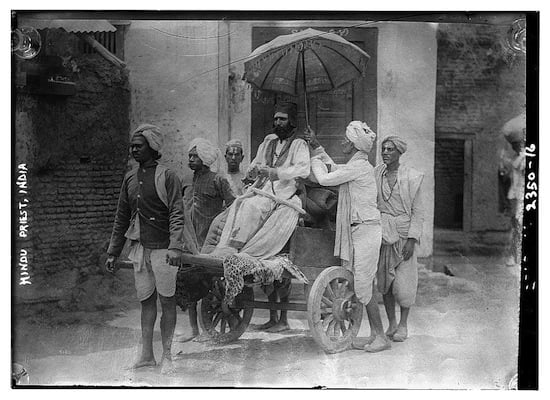
No, I will make an exception, the East did interest me enormously. There it was, at Benares, that I came into touch with certain thinkers who opened my eyes to a great deal. They released some hidden spring in my nature which hitherto had always been striving to break through the crust of our conventions and inherited ideas. I know now that what I was seeking was nothing less than the Infinite; that I had “immortal longings in me.” I listened to all their solemn talk of epochs and years measureless to man, and reflected with a thrill that after all man might have his part in every one of them. Yes, that bird of passage as he seemed to be, flying out of darkness into darkness, still he might have spread his wings in the light of other suns millions upon millions of years ago, and might still spread them, grown radiant and glorious, millions upon millions of years hence in a time unborn.
If only I could know the truth. Was Life (according to Bickley) merely a short activity bounded by nothingness before and behind; or (according to Bastin) a conventional golden-harped and haloed immortality, a word of which he did not in the least understand the meaning?
Or was it something quite different from either of these, something vast and splendid beyond the reach of vision, something God-sent, beginning and ending in the Eternal Absolute and at last partaking of His attributes and nature and from aeon to aeon shot through with His light? And how was the truth to be learned? I asked my Eastern friends, and they talked vaguely of long ascetic preparation, of years upon years of learning, from whom I could not quite discover. I was sure it could not be from them, because clearly they did not know; they only passed on what they had heard elsewhere, when or how they either could not or would not explain. So at length I gave it up, having satisfied myself that all this was but an effort of Oriental imagination called into life by the sweet influences of the Eastern stars.
I gave it up and went away, thinking that I should forget. But I did not forget. I was quick with a new hope, or at any rate with a new aspiration, and that secret child of holy desire grew and grew within my soul, till at length it flashed upon me that this soul of mine was itself the hidden Master from which I must learn my lesson. No wonder that those Eastern friends could not give his name, seeing that whatever they really knew, as distinguished from what they had heard, and it was little enough, each of them had learned from the teaching of his own soul.
Thus, then, I too became a dreamer with only one longing, the longing for wisdom, for that spirit touch which should open my eyes and enable me to see.
Yet now it happened strangely enough that when I seemed within myself to have little further interest in the things of the world, and least of all in women, I, who had taken another guest to dwell with me, those things of the world came back to me and in the shape of Woman the Inevitable. Probably it was so decreed since is it not written that no man can live to himself alone, or lose himself in watching and nurturing the growth of his own soul?
It happened thus. I went to Rome on my way home from India, and stayed there a while. On the day after my arrival I wrote my name in the book of our Minister to Italy at that time, Sir Alfred Upton, not because I wished him to ask me to dinner, but for the reason that I had heard of him as a man of archeological tastes and thought that he might enable me to see things which otherwise I should not see.
As it chanced he knew about me through some of my Devonshire neighbours who were friends of his, and did ask me to dinner on the following night. I accepted and found myself one of a considerable party, some of them distinguished English people who wore Orders, as is customary when one dines with the representative of our Sovereign. Seeing these, and this shows that in the best of us vanity is only latent, for the first time in my life I was sorry that I had none and was only plain Mr. Arbuthnot who, as Sir Alfred explained to me politely, must go in to dinner last, because all the rest had titles, and without even a lady as there was not one to spare.
Nor was my lot bettered when I got there, as I found myself seated between an Italian countess and a Russian prince, neither of whom could talk English, while, alas, I knew no foreign language, not even French in which they addressed me, seeming surprised that I did not understand them. I was humiliated at my own ignorance, although in fact I was not ignorant, only my education had been classical. Indeed I was a good classic and had kept up my knowledge more or less, especially since I became an idle man. In my confusion it occurred to me that the Italian countess might know Latin from which her own language was derived, and addressed her in that tongue. She stared, and Sir Alfred, who was not far off and overheard me (he also knew Latin), burst into laughter and proceeded to explain the joke in a loud voice, first in French and then in English, to the assembled company, who all became infected with merriment and also stared at me as a curiosity.
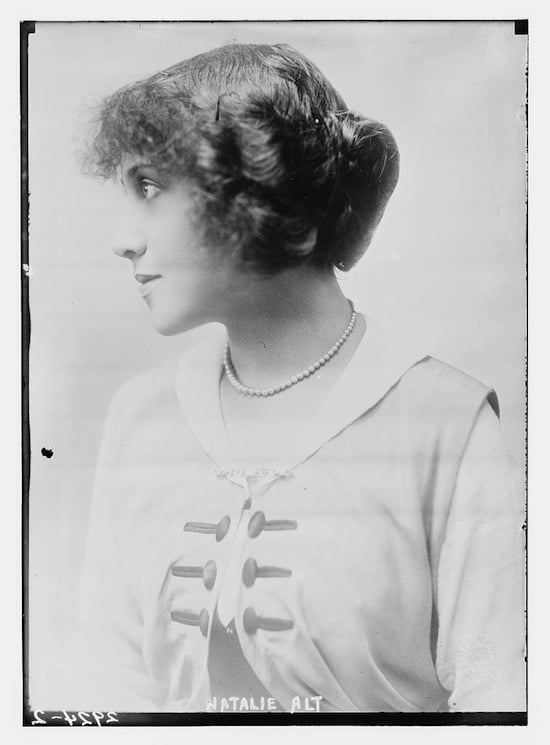
Then it was that for the first time I saw Natalie, for owing to a mistake of my driver I had arrived rather late and had not been introduced to her. As her father’s only daughter, her mother being dead, she was seated at the end of the table behind a fan-like arrangement of white Madonna lilies, and she had bent forward and, like the others, was looking at me, but in such a fashion that her head from that distance seemed as though it were surrounded and crowned with lilies. Indeed the greatest art could not have produced a more beautiful effect which was, however, really one of naked accident.
An angel looking down upon earth through the lilies of Heaven — that was the rather absurd thought which flashed into my mind. I did not quite realise her face at first except that it seemed to be both dark and fair; as a fact her waving hair which grew rather low upon her forehead, was dark, and her large, soft eyes were grey. I did not know, and to this moment I do not know if she was really beautiful, but certainly the light that shone through those eyes of hers and seemed to be reflected upon her delicate features, was beauty itself. It was like that glowing through a thin vase of the purest alabaster within which a lamp is placed, and I felt this effect to arise from no chance, like that of the lily-setting, but, as it were, from the lamp of the spirit within.
Our eyes met, and I suppose that she saw the wonder and admiration in mine. At any rate her amused smile faded, leaving the face rather serious, though still sweetly serious, and a tinge of colour crept over it as the first hue of dawn creeps into a pearly sky. Then she withdrew herself behind the screen of lilies and for the rest of that dinner which I thought was never coming to an end, practically I saw her no more. Only I noted as she passed out that although not tall, she was rounded and graceful in shape and that her hands were peculiarly delicate.
Afterwards in the drawing-room her father, with whom I had talked at the table, introduced me to her, saying:
“My daughter is the real archaeologist, Mr. Arbuthnot, and I think if you ask her, she may be able to help you.”
Then he bustled away to speak to some of his important guests, from whom I think he was seeking political information.
“My father exaggerates,” she said in a soft and very sympathetic voice, “but perhaps”— and she motioned me to a seat at her side.
Then we talked of the places and things that I more particularly desired to see and, well, the end of it was that I went back to my hotel in love with Natalie; and as she afterwards confessed, she went to bed in love with me.
It was a curious business, more like meeting a very old friend from whom one had been separated by circumstances for a score of years or so than anything else. We were, so to speak, intimate from the first; we knew all about each other, although here and there was something new, something different which we could not remember, lines of thought, veins of memory which we did not possess in common. On one point I am absolutely clear: it was not solely the everyday and ancient appeal of woman to man and man to woman which drew us together, though doubtless this had its part in our attachment as under our human conditions it must do, seeing that it is Nature’s bait to ensure the continuance of the race. It was something more, something quite beyond that elementary impulse.
At any rate we loved, and one evening in the shelter of the solemn walls of the great Coliseum at Rome, which at that hour were shut to all except ourselves, we confessed our love. I really think we must have chosen the spot by tacit but mutual consent because we felt it to be fitting. It was so old, so impregnated with every human experience, from the direst crime of the tyrant who thought himself a god, to the sublimest sacrifice of the martyr who already was half a god; with every vice and virtue also which lies between these extremes, that it seemed to be the most fitting altar whereon to offer our hearts and all that caused them to beat, each to the other.
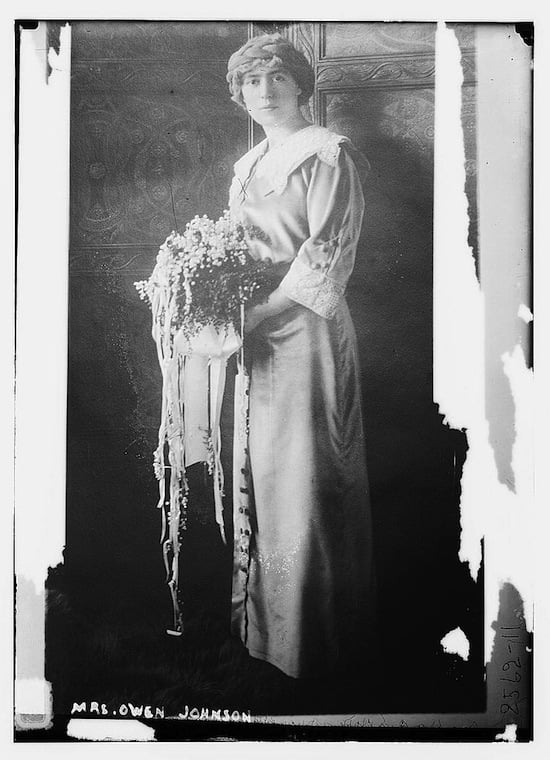
So Natalie and I were betrothed within a month of our first meeting. Within three we were married, for what was there to prevent or delay? Naturally Sir Alfred was delighted, seeing that he possessed but small private resources and I was able to make ample provision for his daughter who had hitherto shown herself somewhat difficult in this business of matrimony and now was bordering on her twenty-seventh year. Everybody was delighted, everything went smoothly as a sledge sliding down a slope of frozen snow and the mists of time hid whatever might be at the end of that slope. Probably a plain; at the worst the upward rise of ordinary life.
That is what we thought, if we thought at all. Certainly we never dreamed of a precipice. Why should we, who were young, by comparison, quite healthy and very rich? Who thinks of precipices under such circumstances, when disaster seems to be eliminated and death is yet a long way off?
And yet we ought to have done so, because we should have known that smooth surfaces without impediment to the runners often end in something of the kind.
NOTE: An advowson is the right to nominate a person to be parish priest, and such right was generally held by the lord of the manor of the principal manor within the parish. A cumberer is one who obstructs or hinders; probably from Old French combrer to impede, prevent.
NEXT WEEK: “One afternoon Bastin arrived carrying a book and in a state of high indignation. This work, written, as he said, by some ribald traveller, grossly traduced the character of missionaries to the South Sea Islands, especially of those of the Society to which he subscribed, and he threw it on the table in his righteous wrath. Bickley picked it up and opened it at a photograph of a very pretty South Sea Island girl clad in a few flowers and nothing else, which he held towards Bastin, saying: ‘Is it to this child of Nature that you object? I call her distinctly attractive, though perhaps she does wear her hibiscus blooms with a difference to our women — a little lower down.'”
RADIUM AGE SCIENCE FICTION: “Radium Age” is HILOBROW’s name for the 1904–33 era, which saw the discovery of radioactivity, the revelation that matter itself is constantly in movement — a fitting metaphor for the first decades of the 20th century, during which old scientific, religious, political, and social certainties were shattered. This era also saw the publication of genre-shattering writing by Edgar Rice Burroughs, Sax Rohmer, E.E. “Doc” Smith, Jack London, Arthur Conan Doyle, Aldous Huxley, Olaf Stapledon, Karel Čapek, H.P. Lovecraft, Charlotte Perkins Gilman, Yevgeny Zamyatin, Philip Gordon Wylie, and other pioneers of post-Verne/Wells, pre-Golden Age “science fiction.” More info here.
HILOBOOKS: The mission of HiLoBooks is to serialize novels on HiLobrow; and also, as of 2012, operating as an imprint of Richard Nash’s Cursor, to reissue Radium Age science fiction in beautiful new print editions. So far, we have published Jack London’s The Scarlet Plague, Rudyard Kipling’s With the Night Mail (and “As Easy as A.B.C.”), Arthur Conan Doyle’s The Poison Belt, H. Rider Haggard’s When the World Shook, Edward Shanks’s The People of the Ruins, William Hope Hodgson’s The Night Land, and J.D. Beresford’s Goslings. Forthcoming: E.V. Odle’s The Clockwork Man, Cicely Hamilton’s Theodore Savage, and Muriel Jaeger’s The Man with Six Senses. For more information, visit the HiLoBooks homepage.
READ: You are reading H. Rider Haggard’s When The World Shook. Also read our serialization of: Jack London’s The Scarlet Plague | Rudyard Kipling’s With the Night Mail and “As Easy As A.B.C.”
ORIGINAL FICTION: HILOBROW has serialized three novels: James Parker’s The Ballad of Cocky The Fox (“a proof-of-concept that serialization can work on the Internet” — The Atlantic) and Karinne Keithley Syers’s Linda Linda Linda. We also publish original stories and comics.
